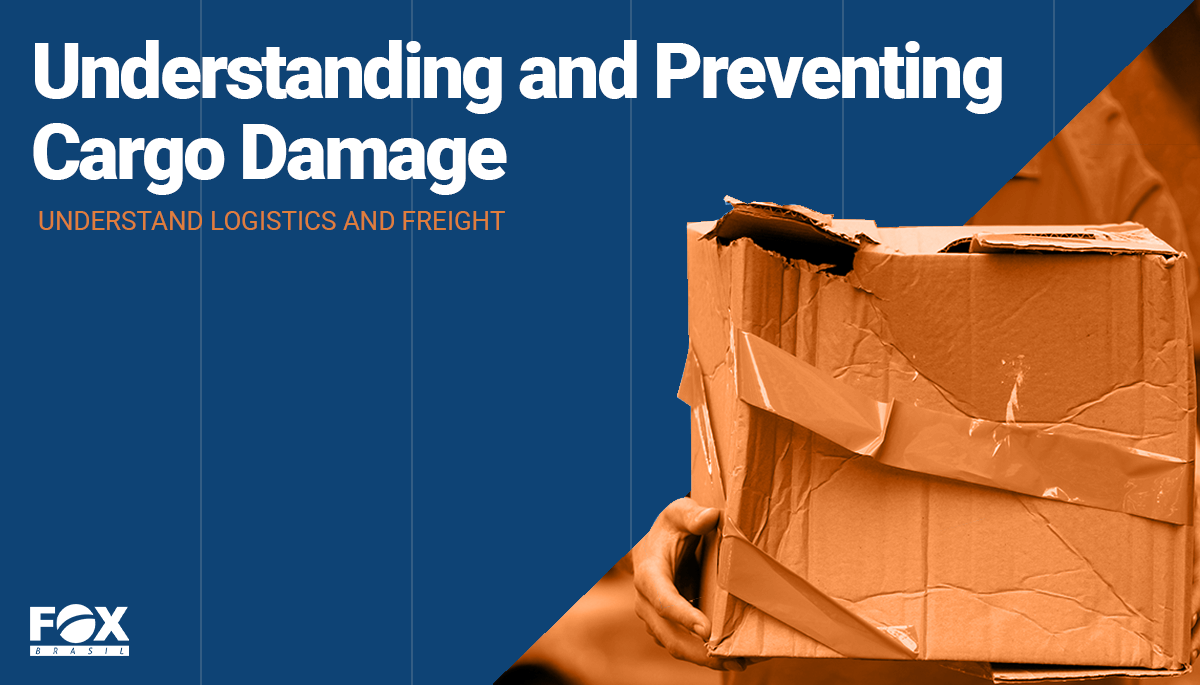Understanding and Preventing Cargo Damage

Tips
In the dynamic world of logistics, ensuring the safe transit of cargo from point A to point B is a paramount concern. Understanding the types of damage that can occur and implementing preventive measures is key to preserving the integrity of your goods. Let’s delve into a few common types of cargo damage and explore effective ways to mitigate the risks.
Physical Damage
The most frequent occurrence of cargo damage, physical damage is a persistent threat during transportation, encompassing breakages, rolling, bumps, drops, and impacts. To safeguard against this, meticulous planning is essential. Proper stowage with adequate dunnage and lashing restricts movement, preventing goods from colliding or shifting. Loading procedures should prioritize stability, and distributing weight evenly to minimize the risk of breakage or structural compromise.
Preventive Measures:
- Use appropriate packaging materials and techniques.
- Implement secure lashing and dunnage to restrict movement.
- Train handling personnel on proper loading and unloading procedures.
Infiltration Damage
Exposure to water, whether through sea voyages, rain, or humidity, poses a significant risk. Corrosion, rusting, and compromised product quality are potential outcomes.
Preventive Measures:
- Choose optimal shipping routes to avoid adverse weather conditions.
- Seal containers tightly to prevent water infiltration.
- Use desiccants and proper packaging to minimize moisture impact.
Contamination Damage
Occurring many times due to similar circumstances as or as a consequence of infiltration damage, contamination happens when cargo is exposed to pollutants, rendering it unsafe for various uses. Improper storage, inadequate separation from other cargo, and lack of proper cleaning after previous shipments contribute to contamination risks.
Preventive Measures:
- Implement strict storage protocols.
- Ensure proper cleaning and decontamination procedures.
- Use appropriate packaging to create a barrier against external pollutants.
Temperature Damage
Temperature-related damage, often encountered in refrigerated transport, includes issues like thawing and decay. Power failures or mishandling of equipment are common culprits.
Preventive Measures:
- Use appropriate temperature control methods based on the type of cargo.
- Monitor temperature controls throughout transit.
- Conduct thorough pre-shipment inspections for refrigerated cargo.
Loss Damage
Cargo loss, whether due to accidents, theft or natural disasters, poses a continuous threat. Secure transportation services, strategic route planning, and comprehensive insurance coverage are vital safeguards.
Preventive Measures:
- Choose reputable transportation services prioritizing security.
- Opt for secure routes and avoid high-risk areas.
- Invest in cargo insurance for financial protection against loss from accidents or natural disasters.
By incorporating these preventive measures, importers, manufacturers, shippers, and carriers can fortify their cargo against a myriad of potential damages. A comprehensive approach ensures a secure and efficient journey, reducing operational and financial risks associated with transportation.
However, it is worth considering that often implementing measures like these may require more time and resources than the cargo owner is able to invest. Therefore, it is advisable to hire a freight forwarder who, with all their expertise and experience, can identify the most effective measures to ensure that the cargo will reach its destination with the same integrity it was sent.